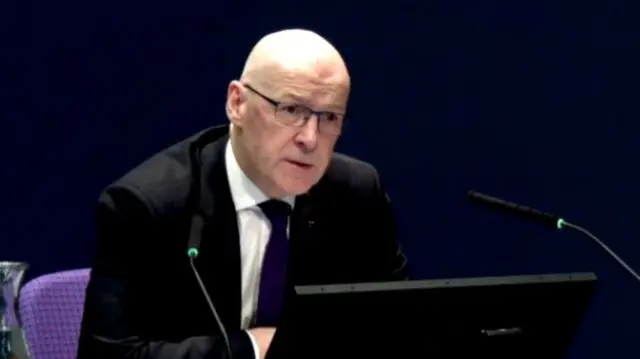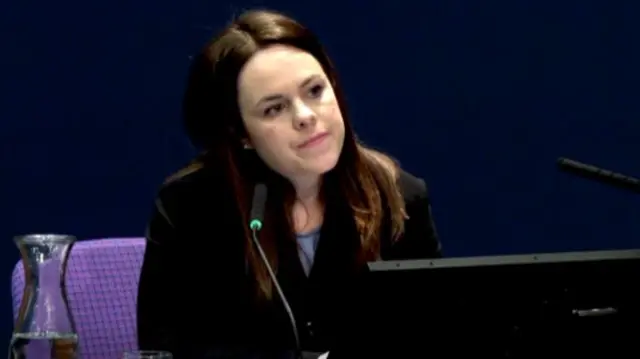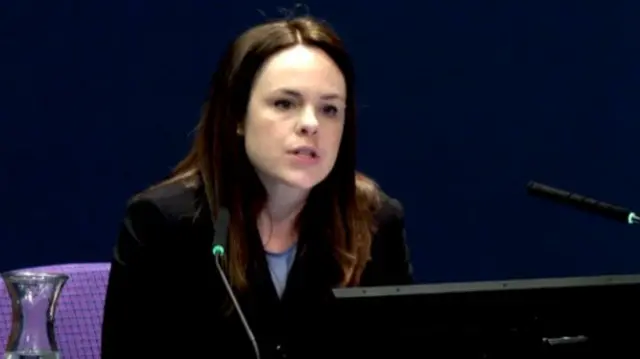'I worked all the hours I could and gave it my all'published at 12:48 GMT 30 January 2024
Inquiry lawyer Jamie Dawson asks John Swinney whether it was difficult for him to devote the requisite energy required to the various roles he held during the pandemic.
He was deputy first minister from 2014-18, acting finance secretary from 2022-23, covid recovery secretary from 2021-23 and education secretary from 2016-21.
"I wouldn't say so," Swinney tells the inquiry.
"I worked all the hours that God sent - seven days a week - from early in the morning to very late at night and I gave it my all."
Swinney says it was "challenging" and there were "multiple demands on my time ... from a variety of different directions but I gave it my level best".






